We came out of the bus, looked up, and saw this magnificent mountain range that seemed to reach the sky. “Why oh why did I not check the Wikipedia before agreeing to climb Yellow mountains?” thought I, realizing that my next food intake was scheduled on the summit of one of these mountains, “I will have to work hard for my lunch today!”
It was one of those days when the sky was clear. Crowds of tourists from all over China were getting ready to conquer these famous mountains. Young and old, nicely dressed, with cameras ready to snap a picture, people were excited to have arrived here the day when picture taking was possible. Apparently, it rains here four out of every five days. Heavy rain clouds hide both mountain peaks and famous, individually named, crooked pine trees. One-sided, beaten by the wind, these pine trees looked like their Canadian relatives from Ontario’s Georgian Bay.
History of Mt. Huangshan
An inspiration for generations of painters and poets, the national pride of China, the Huangshan range of mountains is proudly called “The Number One Mountain Under Heaven” in China. In the Western world, it is known as the Yellow Mountains. Before I saw them, I wondered if the mountains were, in fact, yellow?
They were not. Before 747 AD this mountain range had another name. Yellow was the only color that the emperor could wear in China. Legend has it that the name was changed in honor of the legendary Yellow Emperor, Huang Di. He cultivated his moral character in this location and then ascended to Heaven from it. This is when this inaccessible mountain range started to get attention; the first stair steps and temples then appeared on it.
Now it has more than 60,000 steps, most built after 1970 and masterfully designed (in stone and concrete) to blend with the mountains’ natural looks.
Composed of peaks of unpredictable shapes, beautiful waterfalls, and oddly-shaped pine trees, some of which are a century old, it’s the number one attraction for tourists from all over China. And not only for tourists. Communist Party leaders often bring their important guests, such as top UN, UNESCO, and political officials from different countries, to spend time at the presidential suite at the top of the mountain. Of course, they don’t have to climb the mountain to get there; and, in fact, you don’t have to either. You can take a cable car and enjoy the view from the air or use the services of “workers” (or mountain rickshaws?) to get carried to the top in a comfortable bamboo seat.
Most people, though, prefer to climb Mt. Huangshan, and we came to climb it, too.
Famous Peaks
According to our guide, the Huangshan mountain range is “very, very old” (as per Wikipedia, 100 mil years old) and has “too many peaks to count.” Many peaks have their own, quite poetic, names. For example, one of them was called “Beginning-To-Believe” by the “famous tourist of the Min dynasty”. It is located on the top, and legend has it that the “famous tourist” said that if you still don’t believe this is the best mountain under Heaven, after seeing this peak you will begin to believe.
Though I did not need to be persuaded, I took a picture of this peak to share with the rest of the world:
Just read the names of these other famous peaks, and appreciate the imagination of the ancient Chinese who named them: Celestial Capital Peak, Ploughing Cloud Peak, Peach Blossom Peak, White Goose Peak, Goddess Peak, The Flying Rock.
Climbing Mount Huangshan
The beginning of our ascent was easy. The only thing that made us wary of the challenge in front of us was the number of people coming down the stairs in every funny way imaginable, for example backward and sideways. Our guide explained that some people have pain in their knees after hiking ‘many, many stairs’ and pulled out knee supports from his backpack.
It turned out to be an eight-hour hike.
We seemed to be a major tourist attraction ourselves, and quickly lost count of how many people asked to take a picture with us. Though a top tourist destination among the Chinese, this mountain is yet to become known to Westerners, who mostly stick to the cities.
Sweaty and tired, dressed for hiking, we were surrounded by beautiful Chinese girls in elaborate hats, lace dresses, and matching shoes (some on the high heels!). By our calculation, we climbed more than 20,000 stairs and they must have done about as many. Our appearance was only to be compared to that of the “workers”.
A word about “workers”
Everything, absolutely everything that you use at the hotels at the top is carried there by workers. Bedsheets and food, water and wires get to the top of the mountain by manual labor. We calculated that some workers were carrying up to 60 kg (132 lbs) on their backs. That’s why coffee at the top costs 55 yuan, which is 9 dollars.
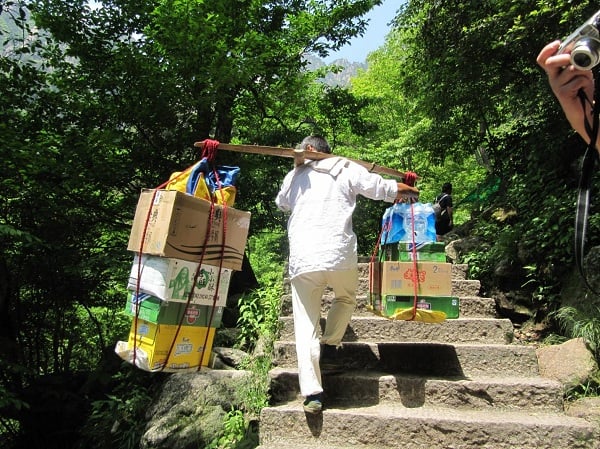
Yellow Mountain Workers
We saw the most beautiful mountain peaks and joined the throng of hundreds of local tourists to see the famous sunrise at 5:12 am. Many locals slept in their tents right by the hotel, but foreign tourists were not allowed to do so, and we settled for a four-star accommodation.
Coming down, and looking back, it was hard to believe that just today we were at the top of the mountain by the tower in this picture:
Hiking Mt. Huangshan was the most spectacular weight loss exercise I have ever undertaken.
Do you now see why James Cameron spent a lot of time in Huangshan and is said to have drawn his inspiration for the nature in Avatar from the Yellow mountains?
Huangshan was the highlight of our trip. We loved its crystal cold streams and waterfalls. “Careful! The water is OK for the Chinese! It can be too cold for you!” screamed our guide as we drank tasty water. It did not need the water cleaning pills that we brought with us. We were fascinated by the peaks and valleys, enchanted by the stories of the trees, and excited to observe beautiful birds and their little ones learning to fly. What a beautiful place to spread your wings.
We shall return.
Leave a Reply
Tags: adventure travel, anhui, article, china, huangshan, yellow mountains

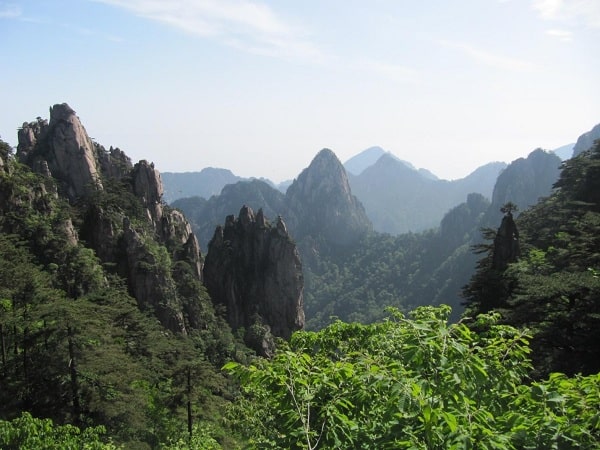
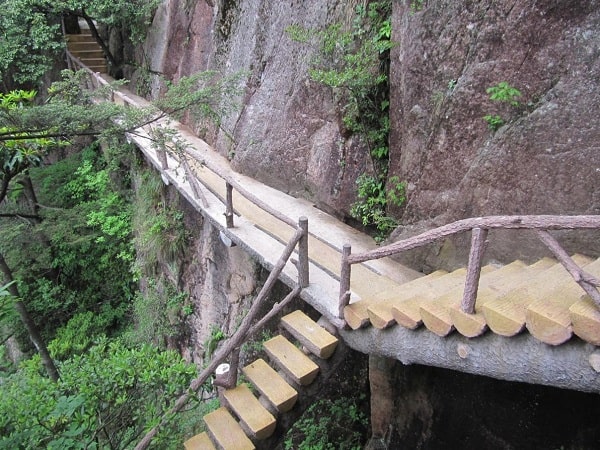
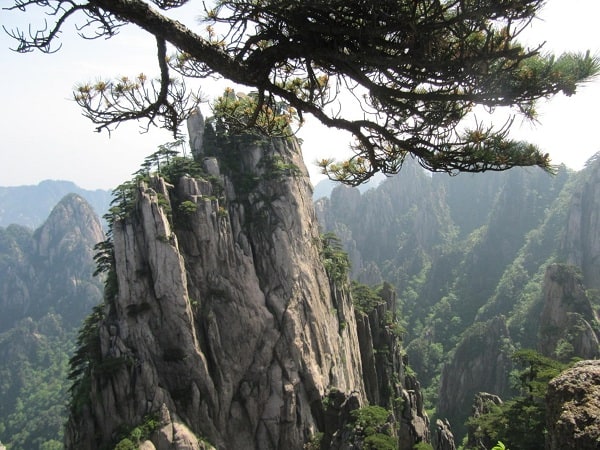
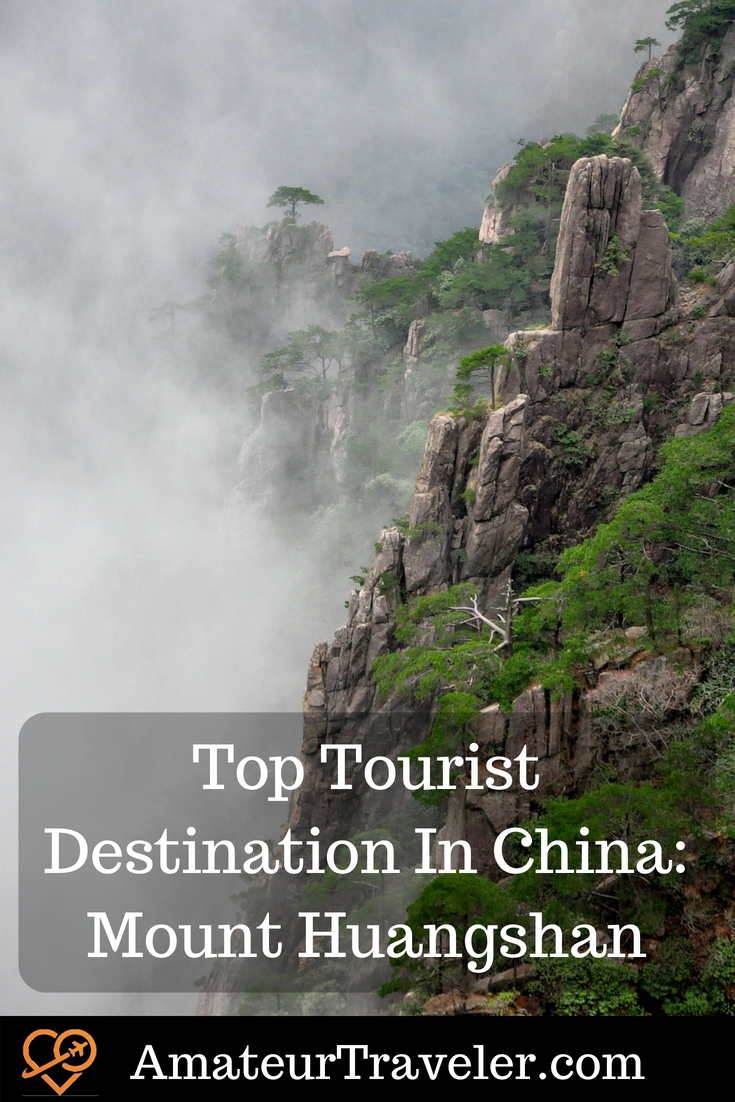
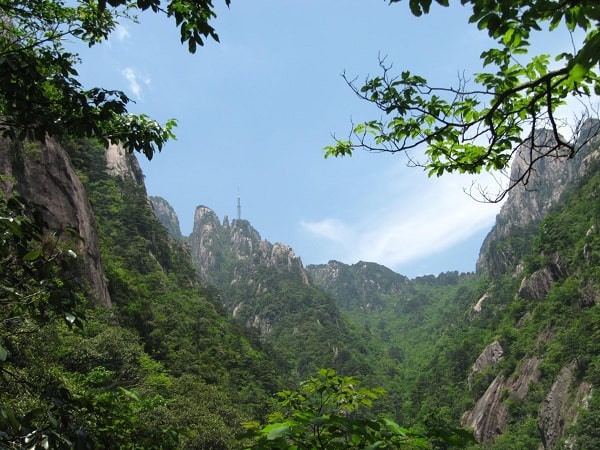
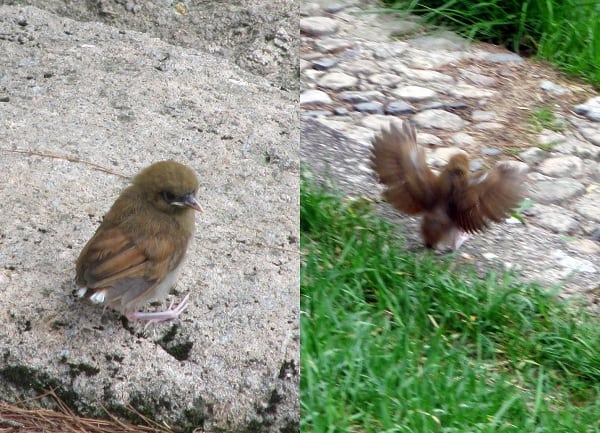
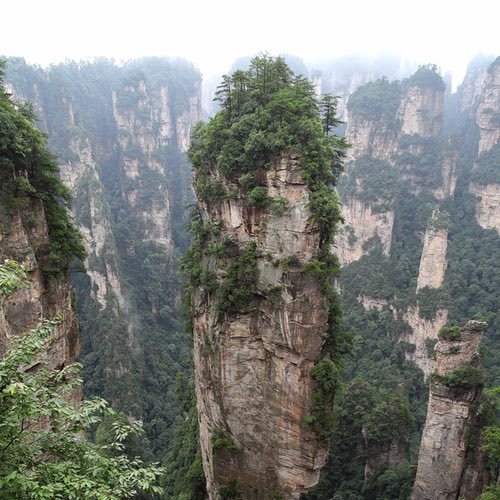 Zhangjiajie National Park – China’s “Avatar Mountains”
Zhangjiajie National Park – China’s “Avatar Mountains”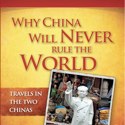 Book Review – “Why China Will Never Rule the World”
Book Review – “Why China Will Never Rule the World” Traveling Behind the Great Firewall of China
Traveling Behind the Great Firewall of China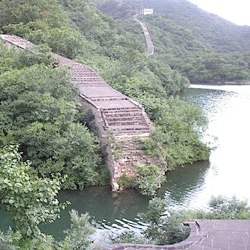 Huanghuacheng Lakeside Great Wall Reserve – The Great Wall of China in Water
Huanghuacheng Lakeside Great Wall Reserve – The Great Wall of China in Water
